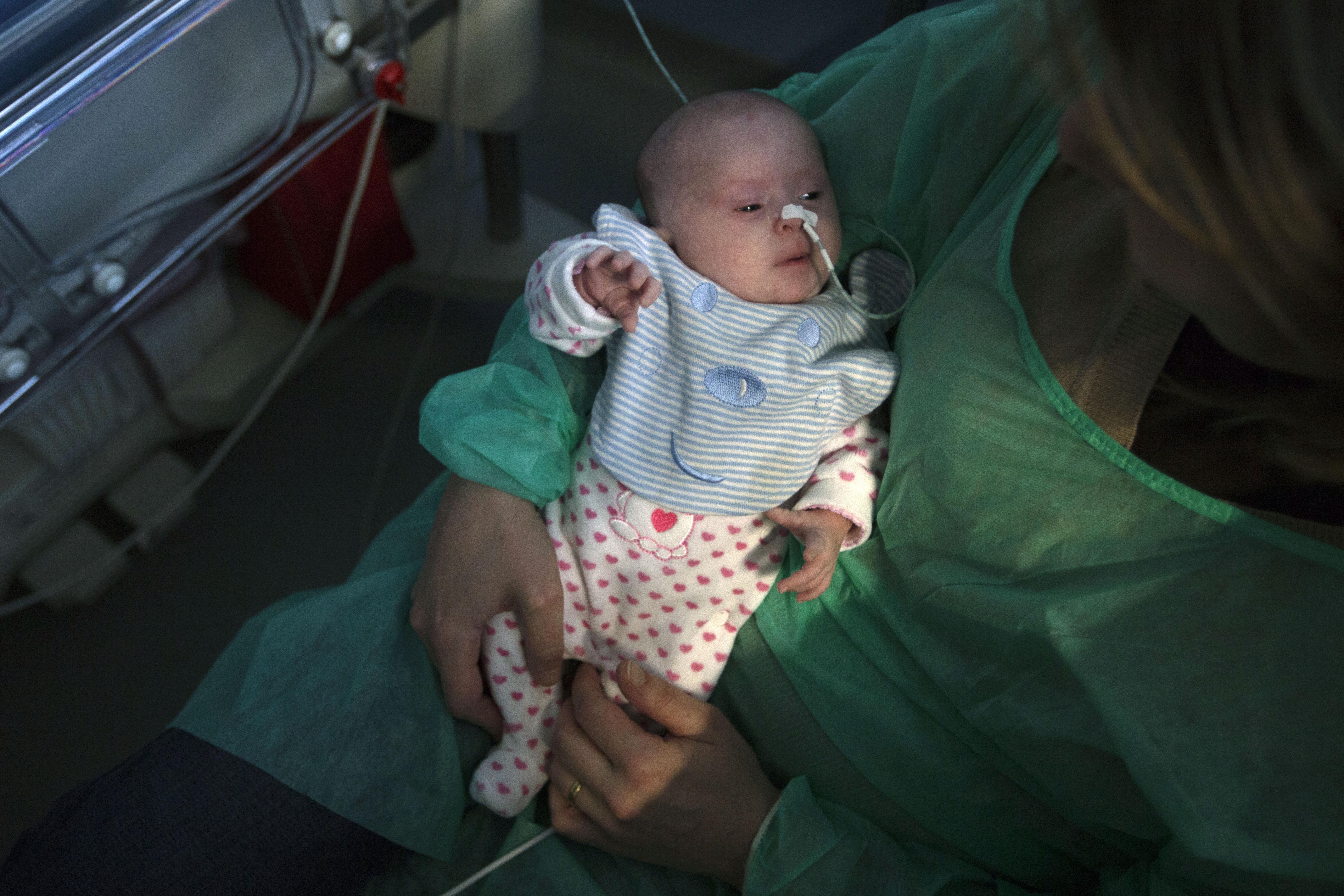Britain is inching toward making history by becoming the first country in the world to approve controversial “three-parent” fertility treatments to help couples avoid passing rare genetic diseases to their children. As the name implies, the process involves DNA from three different people: a mother, a father and a female donor. The science fiction-sounding technique results in the implantation of the genetically modified embryo into the birth mother. Reuters explains the science-y details [British spelling theirs]:
The techniques involve intervening in the fertilisation process to remove faulty mitochondrial DNA, which can cause inherited conditions such as fatal heart problems, liver failure, brain disorders, blindness and muscular dystrophy. [The techniques] are designed to help families with mitochondrial diseases—incurable conditions passed down the maternal line that affect around one in 6,500 children worldwide.
Clearly, this new fertility treatment would be revolutionary. To put things in perspective, about one in 200 children is born every year in Britain with a mitochondrial disorder, according to the Associated Press. But the procedure also raises a whole slew of ethical questions, as the chair of the Human Fertilisation and Embryology Authority, Lisa Jardine, laid out in an interview with The Telegraph last year:
“Here, we are going that mile further which is a genetic modification of the egg. That is uncharted territory. I feel very strongly that once we have genetic modification we have to be damn sure that we are happy, because this is not about us. This is not about our children. It’s not even about our grandchildren. It’s about many generations down the line what the consequences might be.”
The British government’s chief physician, Sally Davies, announced today that her health department would draft regulations to cover the new treatment, and plans to publish them later this year. A final decision on whether the treatment would be open to British patients would be subject to a vote in parliament, but Davies said she hopes it will be available within the next two years. (According to the Associated Press, similar research is going on in in the U.S., but the embryos are not being used to produce children.)
